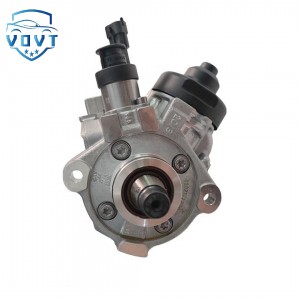Diesel Fuel Injection Pump DB4629-5636 for tractor valmet 8050 – case CS 130
products description
| Reference Code | DB4629-5636 |
| MOQ | 1 PCS |
| Certification | ISO9001 |
| Place of Origin | China |
| Packaging | Neutral packing |
| Quality Control | 100% tested before shipment |
| Lead time | 7~15 working days |
| Payment | T/T, Western Union, Money Gram, Paypal, Alipay, Wechat |
Research on diesel fuel pump based on multi-scale analysis and intelligent maintenance
Diesel oil pump as a key component of diesel engine, its performance directly affects the engine power, economy and emission characteristics. With the continuous development of engine technology, the performance requirements of diesel oil pumps are increasing. Traditional research has focused on macro performance testing and empirical design, which is difficult to meet the needs of modern high-performance engines. In this paper, we start from a new perspective to explore the way to improve the performance and reliability of diesel oil pumps.
Application of multi-scale fluid-solid coupling analysis in diesel oil pumps
2.1 Multi-scale modeling theory
Multi-scale analysis method will be divided into different scales to study the physical processes inside the diesel oil pump. Microscopic scale focuses on the crystal structure and intermolecular forces of the material inside the pump, and studies the microscopic damage mechanism of the material under the impact of high-pressure, high-speed fuel. The mesoscopic scale analyzes the flow characteristics of the fuel in the tiny channel, such as the viscosity of the fuel and the influence of surface tension on the flow stability. Macroscale starts from the overall structure to study the pressure distribution, flow characteristics of the fuel pump and the matching relationship with other engine components. Through the establishment of multi-scale coupling model, it can comprehensively and accurately describe the complex physical phenomena inside the diesel oil pump.
2.2 Flow-solid coupling simulation
On the basis of multi-scale modeling, flow-solid coupling simulation technology is introduced. Considering the interaction between the fuel flow and the pump structure, the high-speed flow of fuel will produce pressure and impact on the pump body, plunger and other components, resulting in structural deformation; and the deformation of the structure will in turn affect the fuel flow characteristics. Using numerical simulation software, the flow-solid coupling process under different working conditions is simulated and analyzed to obtain the pressure field, velocity field and structural stress-strain distribution inside the pump. Through the multi-scale fluid-solid coupling analysis, the potential failure risk inside the pump is revealed, which provides a key basis for the optimized design. For example, in the analysis of a model of diesel oil pump, found that the plunger and the pump barrel with the local stress concentration problem, through the optimization of structural design, effectively reduce the degree of stress concentration, improve the reliability of the pump.
Predictive maintenance of diesel oil pump failure
3.1 Data acquisition and feature extraction
Using sensor technology, real-time collection of diesel oil pump operation data, including pressure, temperature, vibration and other parameters. The collected data is preprocessed to remove noise and outliers. Then, through signal processing and machine learning algorithms, feature parameters that can reflect the operating state of the oil pump are extracted, such as the frequency domain characteristics of the vibration signal and the statistical characteristics of the pressure fluctuations. These feature parameters are used as inputs to the fault diagnosis model to provide data support for subsequent fault prediction.
3.2 Fault prediction model construction
Based on machine learning and deep learning algorithms, the fault prediction model of diesel oil pump is constructed. Support vector machine (SVM), neural network and other methods are used to train the normal operation data and fault data, and establish the mapping relationship between the fault mode and the characteristic parameters. Through model training and optimization, the accuracy and reliability of fault prediction are improved. For example, using the convolutional neural network (CNN) model in deep learning to analyze the vibration data of the diesel oil pump, it can accurately predict the wear and tear, leakage and other faults of the oil pump, and send out early warning signals in advance, which provides maintenance personnel with sufficient time to carry out repairs and replace parts, avoiding downtime losses due to sudden failures.
Through the multi-scale fluid-solid coupling analysis, the complex physical processes inside the diesel oil pump are understood in depth, which provides a scientific basis for the optimization of the design; based on the data-driven predictive maintenance technology, the early warning and active maintenance of diesel oil pump failures are realized. These two aspects of the research for the diesel oil pump performance improvement and reliability assurance opens up new ways. In the future, with the continuous development of computing technology and artificial intelligence technology, it is expected to further improve the multi-scale analysis method and failure prediction model, and promote the development of diesel oil pump technology to a higher level.























